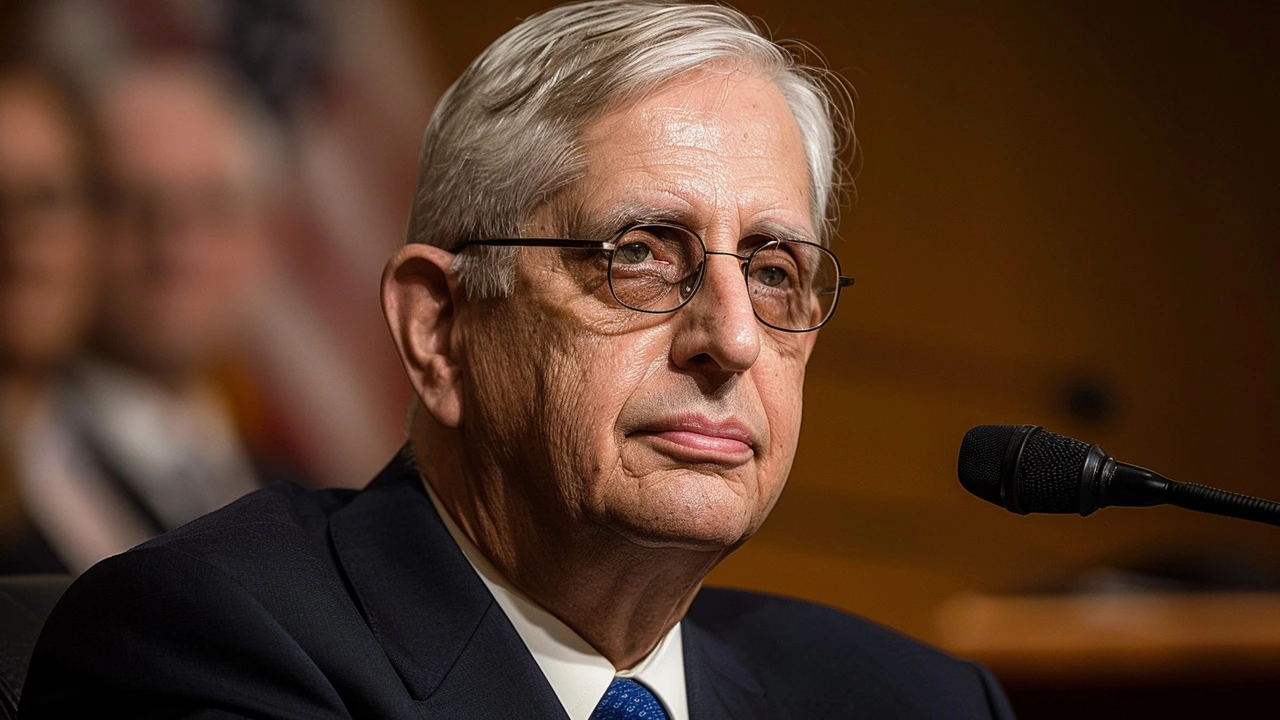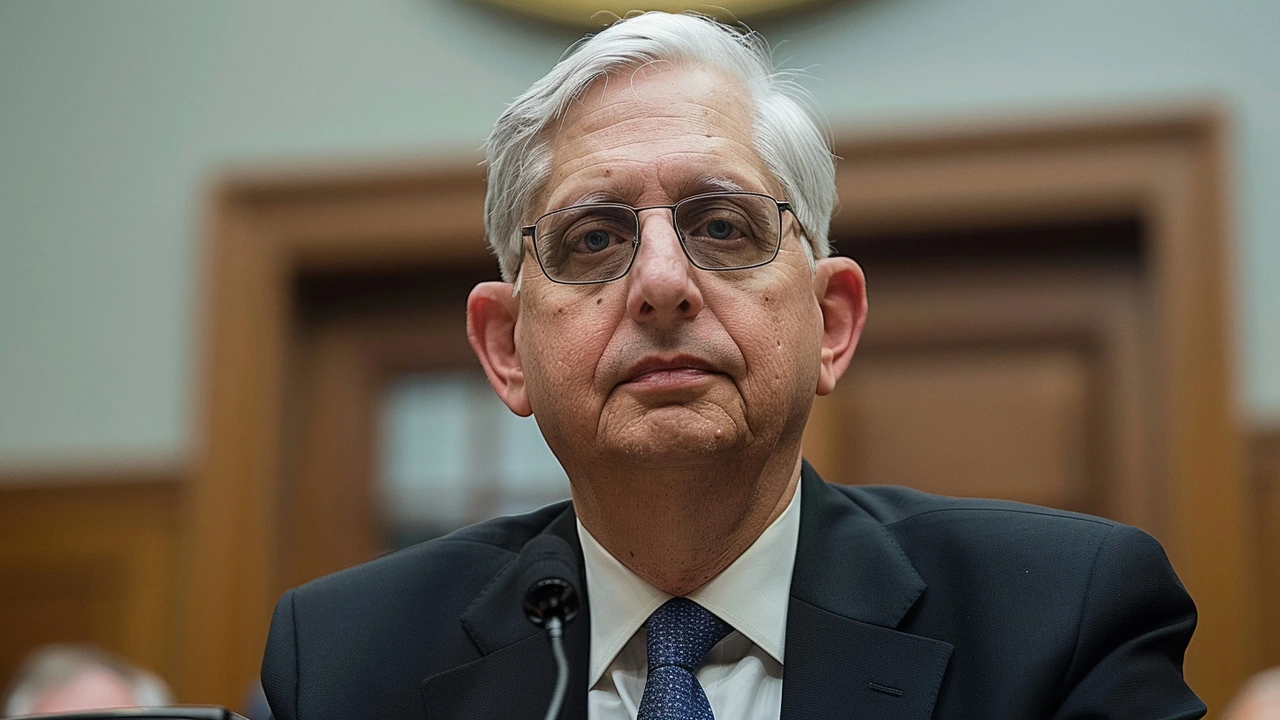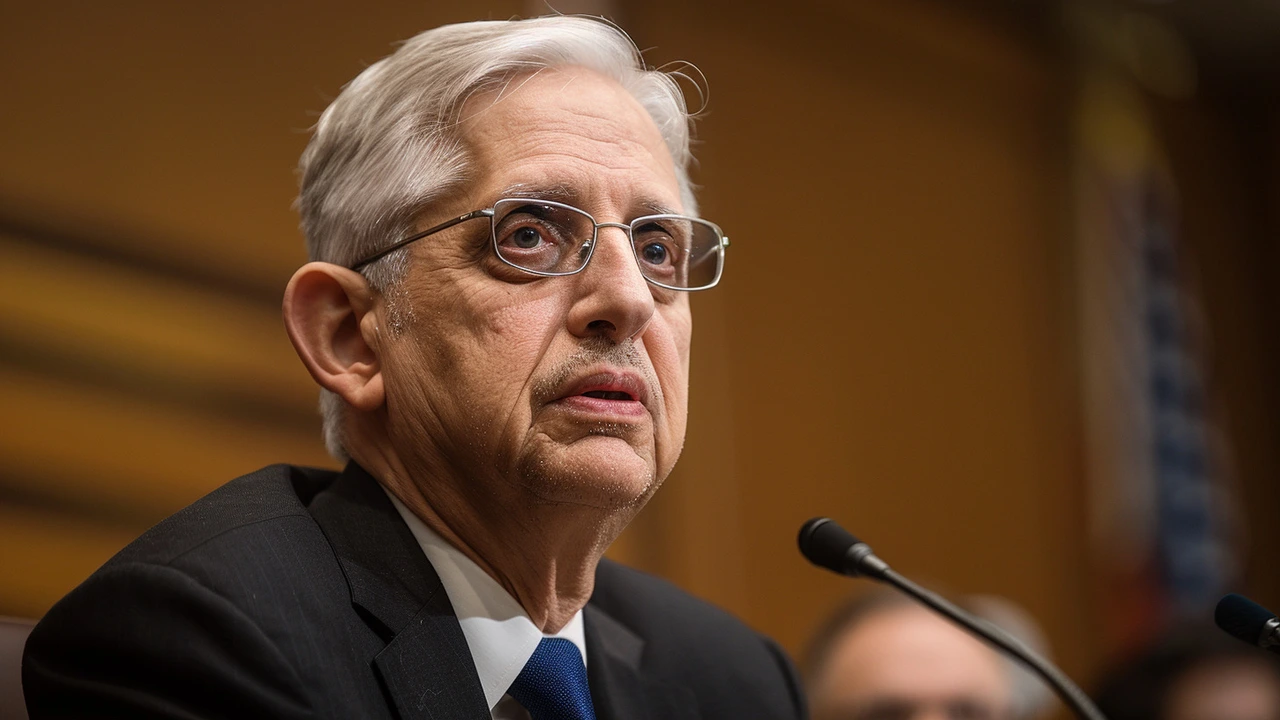House Republicans' Contempt Vote Against Merrick Garland
In an unprecedented and highly contentious move, House Republicans have voted to hold Attorney General Merrick Garland in contempt of Congress. The controversy stems from Garland's refusal to release the audio recordings of an interview conducted by Special Counsel Robert Hur with President Joe Biden regarding a classified documents case. The decision, marked by a starkly near-total party-line vote, saw only one Republican, Rep. Dave Joyce from Ohio, crossing the aisle.
The heart of the matter lies in the recordings that Republicans have been persistently seeking since Special Counsel Hur declined to prosecute the president. Hur's decision was reportedly influenced by what he described as Biden's failing memory and confused responses during the interview. Though Garland made the transcripts of the interview available, he withheld the audio recordings, citing executive privilege as the reason.
This stance taken by Garland has drawn sharp criticism from Republican lawmakers who argue that withholding the recordings is a deliberate attempt at shielding the president from public scrutiny. They have labeled it a cover-up, alleging that the detailed nature of the audio recordings could uncover the true extent of Biden's cognitive state during the interview. Garland, on the other hand, has dismissed these claims as baseless, calling the actions of House Republicans a quintessential partisan witch hunt.
The Catalyst for Controversy
The crux of the controversy can be traced back to February when Hur opted not to press charges against Biden in connection with the classified documents case. This decision instantly ignited speculations and theories regarding the president's mental health, adding fuel to a politically charged environment. While the public had access to the written transcripts of the interview, the absence of audio recordings has led to a clamor for transparency.
Republicans argue that the recordings are crucial for assessing the president's cognitive faculties. They point out that audio can capture nuances, emotions, and hesitations that written transcripts cannot, offering a more comprehensive picture of Biden's responses. Therefore, they contend that the refusal to release this material only spurs further doubt and suspicion among the public.

Executive Privilege vs. Public Right to Know
Merrick Garland's invocation of executive privilege is a central point in this dispute. Executive privilege is intended to protect sensitive executive branch communications from disclosure, ensuring that the president and his advisors can communicate candidly. However, its application here, against a backdrop of political friction, has stirred a debate on the limits of transparency and accountability.
Supporters of Garland's decision argue that maintaining the confidentiality of these recordings is crucial to preserving the integrity of executive communication. They contend that crossing this line could set a negative precedent, where sensitive conversations at the highest levels of government could be exposed to public and political exploitation. Yet, opponents counter that the public's right to know, especially in matters involving the president's cognitive state, outweighs the concerns over executive privilege.
Political Ramifications and Public Perception
The move to hold Garland in contempt carries significant political ramifications. This episode underscores the deep partisan divide that has characterized much of Washington's recent political landscape. For Republicans, this vote is a demonstration of their commitment to accountability and transparency, and it shows their determination to pursue answers irrespective of political consequence.
Conversely, Democratic lawmakers and Garland's supporters view this as another attempt by Republicans to undermine the Biden administration through relentless partisan attacks. They assert that such actions do more harm than good, deepening political rifts, stoking public distrust, and diverting attention from more pressing issues.
Public perception is another critical aspect of this saga. In an era where trust in political institutions is already low, actions perceived as obfuscation or cover-ups can further erode public confidence. For many citizens, especially those on the fence or disengaged from partisan allegiance, this scenario may reinforce a narrative of governmental opacity and partisanship.

Other Political Developments
Amidst this drama, other significant political and social issues continue to unfold. The Federal Reserve recently announced that it would keep interest rates unchanged. Chairman Jerome Powell indicated the central bank might tolerate higher inflation rates above the annual 2 percent target, an approach designed to sustain economic recovery.
Furthermore, on the National Mall, a housing showcase highlighted various innovative housing solutions, drawing attention to the nation's ongoing housing crisis. Across Capitol Hill, Congressional Republicans are also laying groundwork for proposed tax cuts, echoing their long-standing priority of reducing tax burden on businesses and individuals.
From the global stage, the G-7 summit brought together leaders to discuss pressing issues such as climate change, global security, and economic stability. These discussions are crucial as the world navigates through complex challenges that require coordinated and robust responses.
The Path Ahead
As the weeks unfold, it remains to be seen how the impasse between House Republicans and Merrick Garland will evolve. Will the pressure mount enough for Garland to reconsider his stance on the audio recordings, or will the lines of executive privilege hold firm?
Regardless, this episode is a telling indicator of the hyper-partisan atmosphere that pervades Capitol Hill. It is a stark reminder of the ongoing struggle for balance between governmental transparency and the preservation of executive confidentiality. As these battles play out, the American public watches keenly, grappling with questions about leadership, accountability, and the democratic process.
The journey ahead is fraught with challenges and pivotal moments, which will undoubtedly shape the nation's political landscape for years to come. As journalists and observers, it is our role to continue shedding light on these developments, advocating for clarity, and holding those in power to account. The stakes are high, and the public's right to know and understand the intricacies of their governance is paramount.

Comments